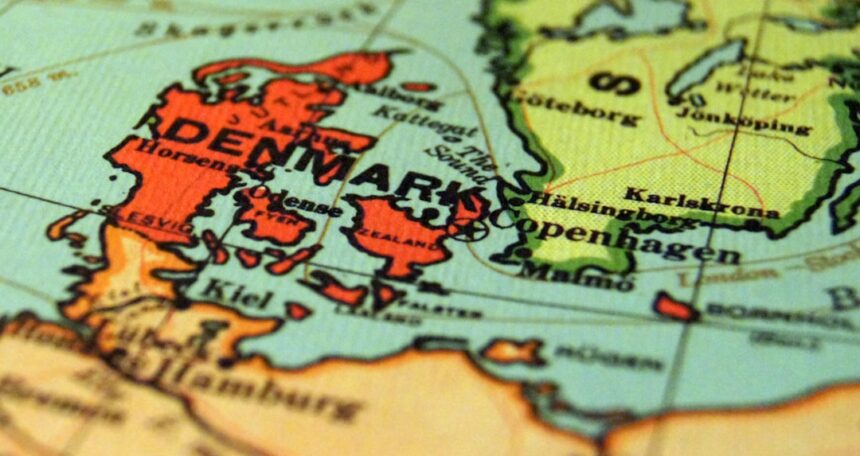The year 1979 stands as a pivotal moment in the annals of global history, marking a series of events that would significantly alter the political landscape across various regions. This year was characterized by a confluence of revolutionary movements, geopolitical shifts, and diplomatic breakthroughs that would resonate for decades to come. The events of 1979 not only redefined national boundaries and power structures but also set the stage for the ideological battles that would dominate the late 20th century.
As nations grappled with the implications of these changes, the world witnessed a transformation in alliances, conflicts, and governance that would shape international relations for generations. In particular, the events of 1979 highlighted the fragility of established regimes and the potential for grassroots movements to effect change. The Iranian Revolution, the Soviet invasion of Afghanistan, and the Camp David Accords are just a few examples of how this year encapsulated the tensions and aspirations of various nations.
The repercussions of these events extended beyond their immediate contexts, influencing global politics, economics, and security dynamics. As historians and political analysts reflect on this transformative year, it becomes evident that 1979 was not merely a collection of isolated incidents but rather a watershed moment that reconfigured the world order.
Key Takeaways
- 1979 was a significant year in shaping global politics, with events such as the Iranian Revolution, the Soviet invasion of Afghanistan, and the Camp David Accords reshaping the international landscape.
- The Iranian Revolution led to the fall of the Shah and the rise of a new power in the Middle East, fundamentally altering the region’s political dynamics.
- The Soviet invasion of Afghanistan escalated Cold War tensions and had far-reaching implications for global security and diplomacy.
- The Camp David Accords marked a new era of diplomacy in the Middle East, with Egypt and Israel making historic peace agreements under the guidance of the United States.
- 1979 also saw the rise of China as an economic superpower, with the country implementing significant reforms that would shape its future trajectory on the world stage.
The Iranian Revolution and the Fall of the Shah: A New Power in the Middle East
The Iranian Revolution of 1979 marked a seismic shift in the Middle East, leading to the overthrow of Shah Mohammad Reza Pahlavi and the establishment of an Islamic Republic under Ayatollah Khomeini. This revolution was fueled by widespread discontent with the Shah’s authoritarian regime, which was perceived as corrupt and disconnected from the needs of the Iranian populace. The revolution galvanized various segments of society, including religious leaders, intellectuals, and leftist groups, uniting them against a common adversary.
The fall of the Shah not only altered Iran’s internal dynamics but also sent shockwaves throughout the region, challenging existing power structures and alliances. The implications of the Iranian Revolution were profound. It signaled the rise of political Islam as a formidable force in global politics, inspiring similar movements across the Middle East and beyond.
The new regime’s anti-Western stance and its commitment to exporting its revolutionary ideology created tensions with neighboring countries and led to a reevaluation of U.S. foreign policy in the region. The revolution also set the stage for a protracted conflict with Iraq, which would further destabilize the region and contribute to ongoing geopolitical rivalries.
As Iran emerged as a key player in Middle Eastern politics, its influence would shape regional dynamics for decades to come.
The Soviet Invasion of Afghanistan: Escalating Cold War Tensions

In December 1979, the Soviet Union launched a military invasion of Afghanistan, an event that would escalate Cold War tensions and have far-reaching consequences for both superpowers. The invasion was ostensibly aimed at supporting a communist government facing internal strife; however, it was perceived by many as an aggressive expansion of Soviet influence in South Asia. This act prompted a swift response from the United States and its allies, who viewed it as a direct threat to global stability and a challenge to their own geopolitical interests.
The Soviet invasion ignited a fierce resistance from Afghan mujahideen fighters, who received support from various countries, including the United States, Pakistan, and Saudi Arabia. This conflict became emblematic of Cold War proxy wars, where superpowers engaged in indirect confrontations through local actors.
The invasion underscored the volatility of international relations during this period and highlighted how local conflicts could have global ramifications.
The Camp David Accords: A New Era of Diplomacy in the Middle East
| Key Points | Details |
|---|---|
| Participants | Egypt, Israel, United States |
| Location | Camp David, Maryland, United States |
| Agreements | Framework for Peace in the Middle East, Egypt-Israel Peace Treaty |
| Outcome | First peace treaty between Israel and an Arab state, return of Sinai Peninsula to Egypt |
| Significance | Shift in Middle East diplomacy, paved the way for future negotiations and agreements |
Amidst the turmoil of 1979, a significant diplomatic breakthrough occurred with the signing of the Camp David Accords between Egypt and Israel. Brokered by U.S. President Jimmy Carter, these accords represented a historic attempt to resolve longstanding tensions between two nations that had been embroiled in conflict for decades.
The agreements laid the groundwork for peace in the region by addressing key issues such as territorial disputes and security arrangements. This moment marked a departure from previous approaches to Middle Eastern diplomacy, emphasizing negotiation over military confrontation. The Camp David Accords had profound implications for regional politics.
However, this peace came at a cost; Egypt faced backlash from other Arab nations for its willingness to engage with Israel, leading to its temporary isolation within the Arab League. Nevertheless, the accords set a precedent for future peace negotiations and demonstrated that dialogue could yield tangible results even in an environment rife with hostility.
The Rise of China: Economic Reforms and the Beginning of a Superpower
While much of the world’s attention was focused on events in the Middle East and Eastern Europe, 1979 also marked a significant turning point for China as it embarked on economic reforms under Deng Xiaoping. These reforms aimed to transition China from a centrally planned economy to one that embraced market-oriented principles. This shift not only transformed China’s economic landscape but also laid the foundation for its emergence as a global superpower in subsequent decades.
Deng’s policies encouraged foreign investment and opened China to international trade, leading to unprecedented economic growth. As China began to integrate into the global economy, it started to reshape international trade dynamics and challenge established economic powers. The reforms initiated in 1979 set in motion a series of changes that would elevate China’s status on the world stage, ultimately positioning it as one of the leading economies by the 21st century.
This transformation underscored how domestic policy shifts could have far-reaching implications for global economics and geopolitics.
The Sino-Vietnamese War: Shifting Alliances in Southeast Asia

In early 1979, shortly after China’s economic reforms began to take shape, another significant event unfolded: the Sino-Vietnamese War. This conflict arose from longstanding tensions between China and Vietnam following Vietnam’s invasion of Cambodia to oust the Khmer Rouge regime—a move that China opposed vehemently. The war was brief but intense, highlighting shifting alliances in Southeast Asia and illustrating how regional dynamics were influenced by broader geopolitical considerations.
The Sino-Vietnamese War had lasting repercussions for both nations involved. For China, it was an assertion of its regional influence and an attempt to counter Vietnam’s growing assertiveness following its victory over Cambodia. For Vietnam, it underscored its isolation from traditional allies like China while simultaneously strengthening its ties with other communist nations such as the Soviet Union.
This conflict exemplified how local disputes could reflect larger ideological battles between communism and capitalism during the Cold War era.
In Nicaragua, 1979 witnessed another revolutionary movement as the Sandinista National Liberation Front (FSLN) successfully overthrew dictator Anastasio Somoza Debayle. This revolution was part of a broader wave of leftist movements sweeping across Latin America during this period. The Sandinistas sought to implement social reforms aimed at addressing poverty and inequality; however, their rise to power alarmed U.S.
officials who feared that Nicaragua could become another communist stronghold in Central America. In response to this perceived threat, the United States began to intervene covertly in Nicaragua by supporting opposition groups known as Contras. This intervention marked a significant chapter in U.S.-Latin American relations and highlighted America’s willingness to engage in covert operations to counter leftist movements during the Cold War.
The Sandinista Revolution not only reshaped Nicaragua’s political landscape but also set off a contentious debate within U.S. politics regarding foreign intervention and its consequences.
The Three Mile Island Accident: Global Environmental Concerns
Amidst these political upheavals, 1979 also brought attention to environmental issues with the Three Mile Island nuclear accident in Pennsylvania. This incident raised serious concerns about nuclear safety and highlighted potential risks associated with nuclear energy production. Although it did not result in immediate casualties or widespread contamination, it sparked public fear regarding nuclear power plants’ safety protocols and regulatory oversight.
The Three Mile Island accident prompted widespread scrutiny of nuclear energy policies worldwide and led many countries to reevaluate their reliance on nuclear power as an energy source. In some nations, it resulted in moratoriums on new nuclear plants or increased investment in alternative energy sources. This incident underscored how technological advancements could pose unforeseen risks and emphasized the need for robust safety measures in energy production—an issue that continues to resonate today as global energy demands evolve.
The Thatcher Revolution in the UK: A New Era of Conservative Politics
In Britain, 1979 marked the beginning of Margaret Thatcher’s premiership—a transformative period often referred to as “Thatcherism.” Her election signaled a shift towards conservative policies characterized by deregulation, privatization of state-owned industries, and an emphasis on free-market principles. Thatcher’s government sought to address economic stagnation and high inflation through radical reforms that would reshape British society. Thatcher’s policies were met with both fervent support and vehement opposition; her approach fundamentally altered Britain’s political landscape by challenging traditional labor unions’ power while promoting individual entrepreneurship.
Her tenure also had significant implications for international relations as she forged close ties with U.S. President Ronald Reagan, aligning their countries’ foreign policies during a critical period of Cold War tensions. The Thatcher Revolution not only transformed Britain but also influenced conservative movements worldwide.
The Soviet Union and the Arms Race: Nuclear Proliferation and Global Security
As 1979 unfolded against this backdrop of political upheaval and economic transformation, concerns about nuclear proliferation loomed large on the global stage. The arms race between superpowers continued unabated, with both the United States and Soviet Union amassing vast arsenals of nuclear weapons capable of catastrophic destruction. This competition heightened fears about global security and stability as nations grappled with balancing deterrence strategies against potential escalation.
The events surrounding 1979 underscored how interconnected global politics had become; conflicts in one region could have ripple effects across continents due to alliances formed during this tense period. As nations navigated these complexities, discussions surrounding arms control gained momentum—culminating in treaties aimed at curbing nuclear proliferation in subsequent years. The legacy of these discussions continues to shape contemporary debates about disarmament and international security.
The Lasting Impact of 1979 on the Modern World Order
The events of 1979 collectively illustrate how interconnected global politics can be shaped by local movements and international dynamics alike. From revolutions that redefined national identities to diplomatic breakthroughs that fostered peace agreements, this year served as a crucible for change across multiple fronts—political, economic, environmental, and social. As historians reflect on this transformative period, it becomes clear that 1979 was not merely an isolated moment but rather a catalyst for ongoing developments that continue to influence contemporary geopolitics.
The legacy of 1979 is evident today as nations navigate complex relationships shaped by historical events from that year—whether through ongoing conflicts rooted in revolutionary ideologies or through diplomatic efforts aimed at fostering cooperation amidst competing interests. As such, understanding this pivotal year is essential for comprehending modern global dynamics; it serves as a reminder that history is often cyclical—where past events inform present realities—and underscores humanity’s ongoing struggle for peace, stability, and progress on an ever-evolving world stage.
The geopolitical impact of 1979 was profound, marking a year of significant shifts in global power dynamics. One of the pivotal events was the Iranian Revolution, which not only altered the political landscape of the Middle East but also had far-reaching consequences on international relations and energy markets. For a deeper understanding of these changes and their lasting effects, you can explore a related article on the topic by visiting In The War Room. This resource provides insightful analysis and context to the events of 1979, offering a comprehensive look at how they continue to influence geopolitical strategies today.
WATCH THIS! From Tehran to Blackwater: The Real Story
FAQs
What is the geopolitical impact of 1979?
The geopolitical impact of 1979 refers to the significant global events and changes in power dynamics that occurred during that year, including the Iranian Revolution, the Soviet invasion of Afghanistan, and the signing of the Egypt-Israel Peace Treaty.
How did the Iranian Revolution impact geopolitics?
The Iranian Revolution of 1979 resulted in the overthrow of the Shah of Iran and the establishment of an Islamic Republic under Ayatollah Khomeini. This led to a shift in the balance of power in the Middle East and strained relations between Iran and the United States.
What was the significance of the Soviet invasion of Afghanistan in 1979?
The Soviet invasion of Afghanistan in 1979 had a major impact on global geopolitics, leading to increased tensions between the United States and the Soviet Union during the Cold War. It also had long-term consequences for the region, including the rise of militant groups and the eventual withdrawal of Soviet forces.
How did the Egypt-Israel Peace Treaty of 1979 impact the Middle East?
The signing of the Egypt-Israel Peace Treaty in 1979 marked the first peace agreement between Israel and an Arab country. This had a significant impact on the geopolitics of the Middle East, leading to a realignment of alliances and changing the dynamics of the Arab-Israeli conflict.




